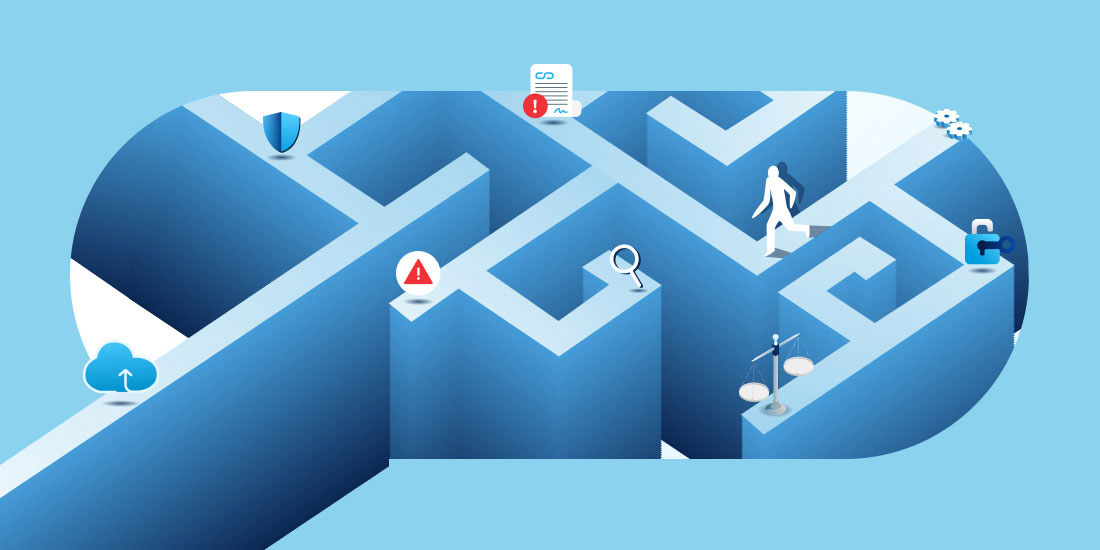Estimated Reading Time: 5 Minutes
Compliance can be a complex term, often meaning different things to various stakeholders. For most MSPs, compliance involves helping clients adhere to laws and industry regulations related to technology and data usage.
MSP compliance is rarely straightforward. Many regulations require organizations to self-certify their compliance levels regularly. Others may not require self-certification but still expect compliance, with periodic audits to follow. These audits often rely on the auditor’s judgement rather than clear-cut standards.
MSPs should view compliance as an ongoing process rather than a one-time achievement. As companies grow and evolve, MSP compliance requirements become more stringent.
Here are six best practices MSPs can implement to help clients meet and exceed minimum compliance thresholds:
1. Verticalize Your Approach
Focus on a few key industry verticals to develop strong expertise. Serving clients across multiple verticals can dilute your specialization. Clients often turn to MSPs for compliance advice and services, so it’s essential to know your clients’ compliance needs.
To become a trusted adviser, MSPs need a critical mass of knowledge in specific industries. Compliance regulations like HIPAA, GDPR, and PCI DSS are crucial, but each industry and region have their own laws and regulations. For example, HIPAA covers not only doctors but also nursing homes, pharmacies, home health care providers, and non-profit health agencies, to name just a few. In the financial vertical, investment advisors are governed by the SEC and FINRA, while commercial banks are subject to the Digital Operational Resilience Act (DORA) in Europe or the Consumer Financial Protection Bureau (CFPB) in the US.
Suffice it to say, MSPs need verticalized expertise to help clients with their compliance and cybersecurity requirements.
2. Understand Certification and Audit Procedures
After gaining expertise in legal requirements and regulations, it’s essential to understand how these rules are enforced. Each industry has unique certification and audit procedures. For instance, CMMC 2.0 – which governs defense contractors for the United States federal government – requires companies to self-certify compliance at Levels 1 and parts of Level 2. For contractors working on “prioritized acquisitions” at Level 2, third-party auditors are required. At Level 3, only the federal government itself may perform the audit and certification for larger, more sophisticated government contractors.
MSPs should develop expertise in legal requirements, implementation standards and certification processes. Even when self-certification is required, companies often seek external experts to ensure compliance, and avoid fines, sanctions or criminal penalties.
3. Select a Minimum Cyber Security Standard
Cybersecurity compliance is the foundational element of most technology compliance initiatives. Once an MSP has staked a position in various industry verticals, it is wise to try to dial in a set of minimum-security standards and controls for each class of clients.
For example, financial clients may require stricter standards than legal clients. Many MSPs use NIST CSF or CIS cybersecurity compliance standards, which are specified in compliance requirements for sectors like defense contracting and finance.
Some MSPs apply these stringent standards across all clients, raising the security bar universally to address today’s complex threat landscape.
4. Perform Regular Assessments
Cybersecurity assessments are essential at the start of a client relationship and should be conducted regularly. These assessments boost prospect engagement during the sales process, allowing MSPs to establish trust and expertise. Integrating them into the sales process helps identify and address potential issues early, ensuring a well-scoped managed services agreement.
Regular assessments, at least annually, are crucial as the cyber threat landscape continually evolves. What was once “enterprise” cybersecurity is now standard for smaller clients, and the consensus is that investments in cybersecurity compliance and business continuity will only keep growing.
5. Operationalize Your Assessment Process
If every new prospect should have an assessment performed, it makes sense to operationalize your assessment process. This means you should standardize the set of tools used in the assessment process and standardize the cybersecurity frameworks that are used to measure or characterize the prospective client’s environment. Lots of leading MSPs have had great success building their assessment process around the NIST CSF.
A common framework for all prospective and existing clients helps to bring clarity to the scoping, quoting, and pricing process. And with a common approach, the MSP realizes better economies of scale as the organization performs more and more assessments.
6. Standardize Essential MSP Compliance Solutions for Your Targeted Industries
MSPs should leverage compliance thinking to design more robust managed service offerings. A key aspect of operational maturity is standardizing the service offering and technology stack. By using the same tools, processes, and standards across all clients, MSPs achieve better economies of scale, control labor costs, and enhance customer service.
A compliance mindset helps MSPs define offerings that meet and exceed minimum requirements for key verticals, while still allowing customization for larger clients. In this way, compliance standards help MSPs build better services.
Conclusion
Dropsuite protects thousands of firms worldwide, helping them meet strict regulatory and legal compliance requirements for data protection and archiving.
We assist MSPs in designing and delivering robust, profitable managed services that include backup and business continuity offerings. Our research ensures compliance with permissions, retention and recovery standards. Helping MSPs meet their clients’ compliance challenges aligns with our passion for supporting MSP partners’ success.
For more information on how Dropsuite helps you and your clients stay compliant, contact us.






